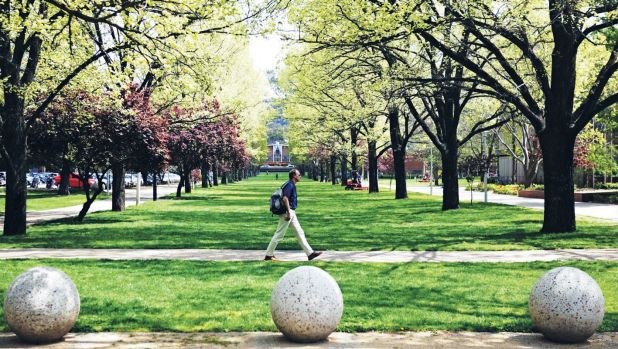The ANU has scaled back its workforce due to the impacts of Covid-19, and has reduced staff numbers, including tutors. As a result, many students are now finding themselves in courses where large seminars have replaced tutorials. These staff reductions have sparked concerns about an overall declining quality of education offered by the University.
The ANU has marketed its student-teacher ratio as “among the highest in Australian universities”, providing more interaction with some of the world’s leading academics. Many other universities face similar staff reductions, and it remains unclear whether this will negatively impact the ANU’s international rankings in the long-term. In his blog, the Vice-Chancellor stated that the ANU expects to see a deficit again in 2021.
When asked what impact the reductions to course tutors will have on the ANU budget, a spokesperson for the University said that:
“It’s difficult to put an exact figure on how many casuals may have had reduced hours during the COVID crisis. Undoubtedly, our current financial situation will see a reduction in the number of casual staff we are able to employ for a period of time.
What we do know is that casual staff account for seven per cent of the University’s salary budget in 2020, a slight decrease from 2019. However, not all of this reduction can be explained by the pandemic as we have been working to provide more ongoing work opportunities for our casual staff.”
Despite COVID-19’s disruption to in-person education in Semester 1, 2020, changes to tutorials were largely not witnessed as, according to an ANU spokesperson, the University proceeded with paying its casual and casual sessional staff when the pandemic began. Instead, the noticeable impact on tutorial sizes was first felt in Semester 2 of last year, when ANU reduced its workforce size, including its casual academics, of which the University is “sad to see” depart.
In response to anxieties surrounding the quality of tutorials, an ANU spokesperson responded, “ANU remains committed to providing our students with the best education experience possible. The University continues to deliver tutorials to the same high-standards it always has.”
When approached to provide insight on changes in the quality of education received, some ANU students highly disagreed with the University’s statement, particularly students from the College of Arts and Social Sciences. A student studying International Relations within the College of Arts and Social Sciences said:
“A lot of students, especially international students, are paying a lot of money to attend the ANU, and we expect to receive a quality education, but we are simply just not receiving it. We are being forced to have much larger tutorials.”
Similarly, another student within the College of Arts and Social Sciences reported, “In a lot of my larger, mainstream, core courses, the tutorials are now massive, and when there is a participation mark, it is really difficult to attain, and this is not fair.”
However, ANU students from other disciplines, such as the ANU School of Earth Sciences and College of Engineering and Computer Science, have reported no change in their tutorial sizes.
The ANU’s recovery plan is in full on the ANU website.
We acknowledge the Ngunnawal and Ngambri people, who are the Traditional Custodians of the land on which Woroni, Woroni Radio and Woroni TV are created, edited, published, printed and distributed. We pay our respects to Elders past and present. We acknowledge that the name Woroni was taken from the Wadi Wadi Nation without permission, and we are striving to do better for future reconciliation.
